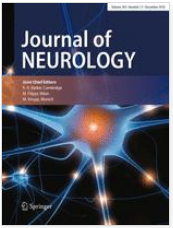 Daytime sleepiness and fatigue are prominent symptoms of myotonic dystrophy type I (DM1) that exact a heavy toll on patients’ quality of life, but information is scarce on their predictive factors. This study aimed to determine factors that may influence levels of daytime sleepiness and fatigue in a large cohort of DM1 patients followed for 9 years.
Daytime sleepiness and fatigue are prominent symptoms of myotonic dystrophy type I (DM1) that exact a heavy toll on patients’ quality of life, but information is scarce on their predictive factors. This study aimed to determine factors that may influence levels of daytime sleepiness and fatigue in a large cohort of DM1 patients followed for 9 years.
This study included 115 patients with DM1 at baseline (Time 1, T1) and at Time 2 (T2) who were questioned for daytime sleepiness, fatigue, history of depression, psychological distress, pain, hypothyroidism, and sleep habits. Also, their muscular impairment and intellectual quotient were evaluated. Regression models were used to identify correlates of daytime sleepiness and fatigue while controlling for time effect.
Both daytime sleepiness and fatigue increased between T1 and T2, but their rate of change are higher when CTG repeat number is higher. Also, higher psychological distress level is associated with higher daytime sleepiness and fatigue levels both at T1 and T2. Moreover, patients with a history of depression report higher daytime sleepiness levels both at T1 and T2. In addition, patients with higher fatigue levels both at T1 and T2 have more severe muscular impairment and report a longer habitual sleep duration. Finally, a higher BMI and a history of hypothyroidism predict higher daytime sleepiness levels at T2.
This study identified potentially modifiable risk factors of future daytime sleepiness and fatigue in DM1 patients, including BMI, psychological distress, hypothyroidism, and sleep habits.
